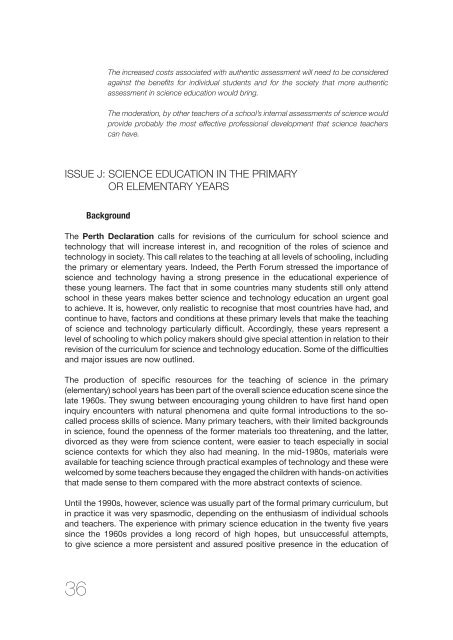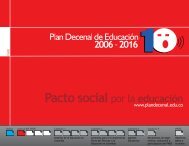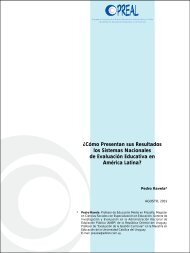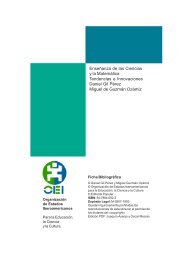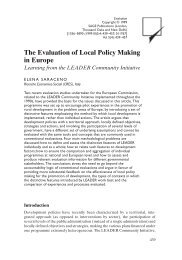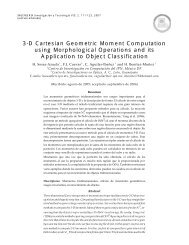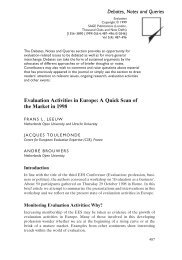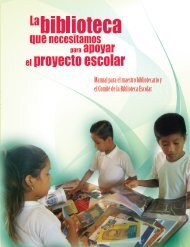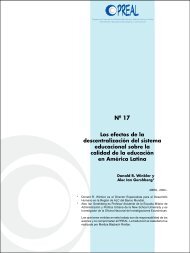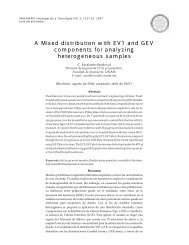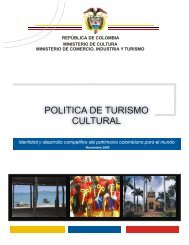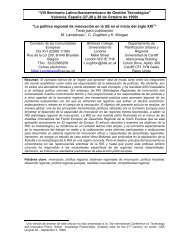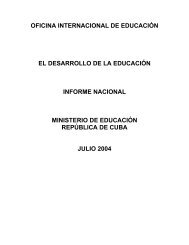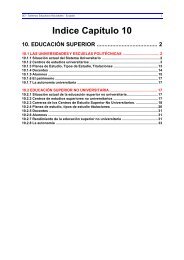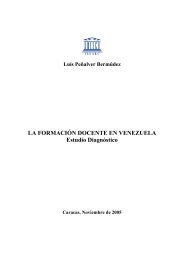Science education policy-making: eleven emerging issues; 2008 - OEI
Science education policy-making: eleven emerging issues; 2008 - OEI
Science education policy-making: eleven emerging issues; 2008 - OEI
You also want an ePaper? Increase the reach of your titles
YUMPU automatically turns print PDFs into web optimized ePapers that Google loves.
The increased costs associated with authentic assessment will need to be considered<br />
against the benefi ts for individual students and for the society that more authentic<br />
assessment in science <strong>education</strong> would bring.<br />
The moderation, by other teachers of a school’s internal assessments of science would<br />
provide probably the most effective professional development that science teachers<br />
can have.<br />
ISSUE J: SCIENCE EDUCATION IN THE PRIMARY<br />
OR ELEMENTARY YEARS<br />
Background<br />
The Perth Declaration calls for revisions of the curriculum for school science and<br />
technology that will increase interest in, and recognition of the roles of science and<br />
technology in society. This call relates to the teaching at all levels of schooling, including<br />
the primary or elementary years. Indeed, the Perth Forum stressed the importance of<br />
science and technology having a strong presence in the <strong>education</strong>al experience of<br />
these young learners. The fact that in some countries many students still only attend<br />
school in these years makes better science and technology <strong>education</strong> an urgent goal<br />
to achieve. It is, however, only realistic to recognise that most countries have had, and<br />
continue to have, factors and conditions at these primary levels that make the teaching<br />
of science and technology particularly difficult. Accordingly, these years represent a<br />
level of schooling to which <strong>policy</strong> makers should give special attention in relation to their<br />
revision of the curriculum for science and technology <strong>education</strong>. Some of the difficulties<br />
and major <strong>issues</strong> are now outlined.<br />
The production of specific resources for the teaching of science in the primary<br />
(elementary) school years has been part of the overall science <strong>education</strong> scene since the<br />
late 1960s. They swung between encouraging young children to have first hand open<br />
inquiry encounters with natural phenomena and quite formal introductions to the socalled<br />
process skills of science. Many primary teachers, with their limited backgrounds<br />
in science, found the openness of the former materials too threatening, and the latter,<br />
divorced as they were from science content, were easier to teach especially in social<br />
science contexts for which they also had meaning. In the mid-1980s, materials were<br />
available for teaching science through practical examples of technology and these were<br />
welcomed by some teachers because they engaged the children with hands-on activities<br />
that made sense to them compared with the more abstract contexts of science.<br />
Until the 1990s, however, science was usually part of the formal primary curriculum, but<br />
in practice it was very spasmodic, depending on the enthusiasm of individual schools<br />
and teachers. The experience with primary science <strong>education</strong> in the twenty five years<br />
since the 1960s provides a long record of high hopes, but unsuccessful attempts,<br />
to give science a more persistent and assured positive presence in the <strong>education</strong> of<br />
36


